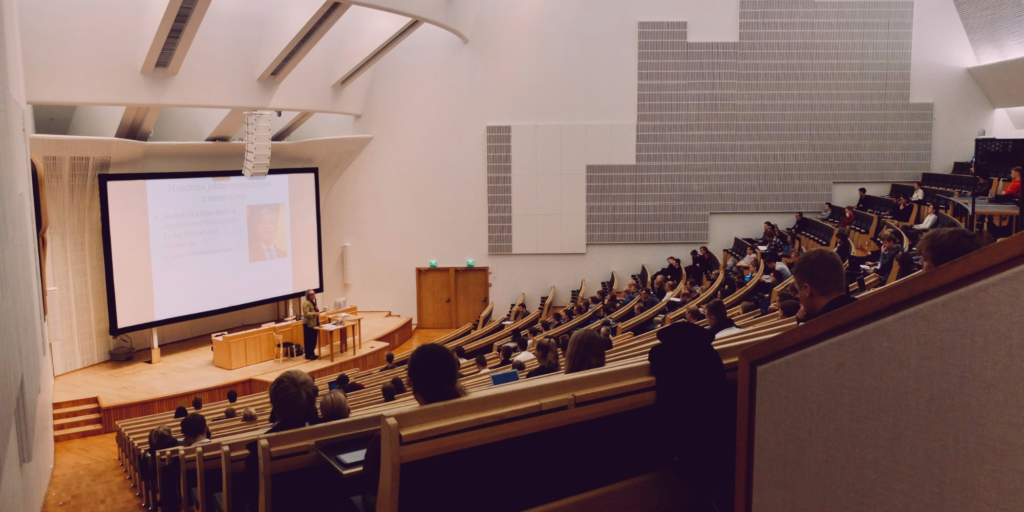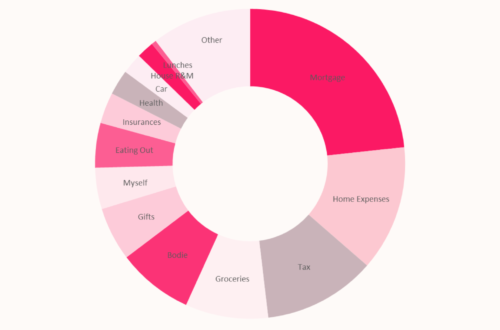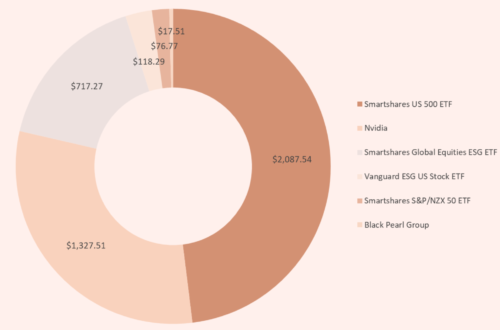
My Top 10 Money Mistakes – Number 9
It is strange looking back on my life (so far) and evaluating my financial decisions like this… I have always firmly believed in no regrets. I believe you learn the most when things have seemingly ‘gone wrong’ or you’ve ‘failed’ at something, or made a ‘mistake.’ I also believe that you learn things exactly when and how you are meant to, not a moment sooner. I know I wouldn’t be where I am today if not for every single ‘mistake’ I have made, and I love my life – financial challenges and all. So writing this list of money mistakes feels a little at odds with my value of living life with no regrets.
But, I do find it helpful to look back at how far I have come. How much I have learned and grown in such a relatively short space of time. Plus, if I can help one person learn and avoid making the same mistakes I made, then this self-evaluation will have been worth it.
So, what makes it into this list at number 9.
Money Mistake Number 9:
Not questioning societal norms
We grow up being told a set of societal ‘rules’ and norms. Some of them explicitly, like: you go to school, good grades at school will get you into university and a degree will get you a well paying job. Sound familiar? I definitely remember being told that when I was younger.
Some of what we’re told growing up is less explicit. We might not be told them directly, but we absorb the ideas and beliefs from those around us, like: you work 9 to 5, for someone else, getting paid a wage for the hours you work, and the size of that wage dictates the house, car, holiday and lifestyle you can afford. We might never have been told as a child that if we earn a lot we need to have a nice house and a new car to show how well we’re doing… but that is what we learn implicitly from society.
(Society’s expectations dictate way more of how we live our lives than we realise.)
And then there is the old classic: when you get older you settle down, find someone to share your life with, buy a house together and have children. At such time, as a woman, you give up the career you have studied and worked for to take care of said children. What woman hasn’t been taught this one? Maybe not explicitly nowadays, maybe your Mum even told you that women today have a choice, but society tells us otherwise. Society tells us that unless we are partnered and have children, our lives are sad and lonely. Just look at every film or series to ever come out of Hollywood. No woman ever lives happily ever after on her own (with her dog) it’s always the tale of falling in love, even if you’re dead you are expected to find someone to spend eternity with – every vampire in the Twilight series was partnered?!
And last but not least the end that we all have to look forward to: you work long and hard until you are 65, when if you are lucky you can retire relying on your savings, the equity in your home and whatever government superannuation still exists until you’re so old you enter a retirement village, and spend every day waiting for the before mentioned children to visit!
Of course there are other societal norms such as women being the caretakers of the family (when it comes to children, siblings and parents), having to eat 3 meals a day (that is one I actually did question!), being awake 16 hours a day and sleeping 8 hours a night (biologically there are questions around whether we actually evolved to do that or if it is capitalism that has forced us into this sleep cycle), having to take something when going to a friend’s for dinner – even if they tell you not to, and of course the all important eating savoury courses before sweet. But I really want to focus on the ones that affect our finances (as this is a personal finance blog) The ones that had I questioned I might be living a very different life now….

You Need a Degree to Earn Good Money
You don’t!
This is an interesting one for me because I actually never went to university and yet this societal norm still held me back. I might have avoided the crippling student loan debt that those who followed the ‘normal’ path left university with, but I also let my lack of university education allow me to feel stupid, unworthy and incapable. Believing I needed a university degree to earn good money meant I never felt capable of certain jobs, it meant I never felt worthy of promotions (or even some of the jobs I managed to get) and it meant I looked around the office and always assumed everyone else was cleverer than I was.
Despite being clever enough to work my way up the corporate ladder and get good jobs, proving myself capable, I never felt deserving of the positions or promotions I was offered – so I was certainly never going to push for bigger and better ones. I never felt worthy of the money I earned, looking at my cousin (who was a nurse) and colleagues who had degrees (even ones that were irrelevant to the jobs they were doing – buyers with art degrees, business analysts with English literature degrees, supply chain directors with history degrees) as more deserving.
I always thought that had I gone to university, then I would have felt capable of anything, then I would have had the confidence to go for more senior roles, then I would have felt clever compared to my peers, then I would have felt worthy of senior management positions, then I would have felt legitimate. Instead I suffered from debilitating imposter syndrome my entire career and always blamed my lack of university education for it. Yet I listen to a life coach that went to Harvard Law School and STILL felt like an imposter in her job! Still felt unworthy. And I have worked for amazing women that despite their qualifications and experience still suffer from self-doubt and imposter syndrome. So it seems the university education doesn’t guarantee you the confidence or self-belief either.
Meanwhile I listened to an amazing podcast where Mel Robbins interviewed Diary of a CEO author Steven Bartlett and he quit university after one lecture but went on to make millions of dollars starting and selling his own business. And there are plenty of others like him – people who worked their way up in large corporations gaining promotions through hard work and experience, people who learned a trade and are now well paid living a good life doing something they love, and people who started their own business and are now millionaires. All without a degree.
I am not saying that university isn’t important – I don’t want to be operated on by a surgeon that doesn’t have the necessary degree in medicine! But a degree is not necessary to earn or make good money. All that is necessary for that is a skill, self belief, and the motivation to succeed. If I had believed that my whole life, instead of constantly telling myself I needed a university degree to even feel worthy of the job I had…

More Money Means More House
It doesn’t!
And I am not just talking about the house. The house is just a symbol for lifestyle creep full stop. Earning more money does not mean newer car, more clothes, a boat and a bach. Earning more money does not mean we need to create a life where we accumulate more things. Earning more money does not mean we need to spend more money.
There is no benefit to keeping up with the Joneses. We do it because we are taught to think it will give us satisfaction with our life, and that satisfaction will make us happy (the only reason humans ever do anything is because we think it will make us happy) but it’s not true. Big houses and status symbols are not what bring us long lasting satisfaction or happiness.
The more we buy and accumulate, the more we want. Happiness actually comes from having/being satisfied with less, and wanting less. In fact there’s a phenomenon called ‘hedonic adaptation’ which refers to the notion that after positive events (something good happening to you), you experience a short-lived high or period of positive feelings, but then you return to a baseline level of happiness (Diener, Lucas, & Scollon, 2006). If you apply hedonic adaptation to lifestyle creep and spending, what that means is when you first buy the big new house you have a few weeks or maybe months of excitement and pleasure of the larger space, the extra rooms, the huge garden, the whatever…. But after that you return to the same baseline level of happiness you had in your old house. The same with the flash new car, or the latest iPhone, or those banging headphones.
The good news is that hedonic adaptation also works in our favour, because the same is true of negative events. So again, applying this to finances and spending money, downsizing your house or selling that flash new car for something more economical, you might miss the space or extra horsepower you had for a few weeks, but then you return to the same baseline level of happiness.
When I started earning more I went from a perfectly lovely 2 bedroom house in a market town (in southwest England), to a beautiful 3 bedroom stone house in a more desirable village (and I upgraded my car!). I was single, without children (or pets) and lived on my own with a 5 minute commute to work. I had absolutely no need for a 3 bedroom house or a newer car. They were both just symbols of my success. Without even thinking about it, I was just showing those around me that I was young and doing “really well”.
Had I been happy with what I had rather than thinking earning more meant I needed more I could have saved myself the cost of moving, the estate agents fees, the solicitors fees, the additional mortgage interest, and if 20 years ago I had invested all of that instead….

Hours Worked Equals Money Earned
It doesn’t have to – and shouldn’t!
This is such a HUGE one! Equating what I can earn with the number of hours I can or do work has probably been the biggest limiting belief, the one that has held me back from creating any kind of meaningful wealth.
Think about it this way, if you want to be a millionaire (and who doesn’t) based on the average hourly rate here in New Zealand of NZ$29.66 per hour (as of February 2023) we would need to work 648 hours a week. Even if we earned double the average we would need to work 324 hours.
The problem here is obvious – there is one of us and we can only work a limited number of hours a week. Therefore the answer is that we need to earn based on the value we are adding, not the hours we are working. Something might only take us 10 minutes, but to a business, business owner or individual what we did in that 10 minutes could be of immense value to them. And it is ok to charge $1,000 for something that is going to save or make someone $100,000. Even if it only took us 10 minutes. It is engrained in us from such a young age that we work 40 hours a week and if we’re lucky we earn a good wage from doing so. We are taught that we need to work hard in order to make money (or in other words, it is hard work to make money) But believing our earning potential is an hourly rate for a 40 hour work week is such a limiting belief, based on an arbitrary construct that was created for a way of working that barely exists anymore! (factory workers during the industrial revolution)
With the evolution of the internet and all of the new jobs and careers it has created that didn’t exist 5 years ago let alone 50 (AI prompt writer anybody?!) there are ways of earning good money working far less than 40 hour weeks. And with the internet meaning we’re no longer limited to finding clients in the cities or countries we live in, we can also work hours that suit us and allow the weak New Zealand dollar to work in our favour for a change – earning USD is amaaaazing!
It is impossible to become a millionaire from an hourly wage…. Heck it is pretty much impossible to become a half millionaire on an hourly wage. But there is one job where our earning potential is unlimited, and that is business owner. Find a problem, create the solution and reach an audience that wants that solution and you can easily make a million dollars. And how much we can earn has next to nothing to do with how many hours we work. It has everything to do with how much value we add. If only I had realised this 20, 10 or even 5 years ago…. (seriously, I think this one has cost me millions!)

Women Should Give Up Their Career and Financial Independence to Raise Children
They shouldn’t! (or it should at least be a discussion and a choice)
How many of us were raised by our mums whilst our dads worked? And how many of us are doing the same without any kind of conversation?
Or how many of us are not a stay at home mum and feel as though we receive nothing but judgement? From our parents, from other Mum’s, from random strangers in the supermarket…. And this is after women won the vote and are now able to get a credit card without a man (that happened in the 1970s)
Women giving up their career, and their financial independence, to stay at home with the children is still the norm. Expected even. There are rarely conversations before we give up our jobs. If we’re lucky maybe we can return to part time employment once the children are at school, but its definitely expected that we’re there when they get home! And lots of women wouldn’t have it any other way, so if that’s you, I am definitely not telling you you’re wrong.
This hasn’t affected me directly, being child free, so it could be said I have no right to an opinion at all. But I see it as part of the wider feminist financial problem, and I have seen it play out with painful regularity amongst friends and peers. It is a problem that affects most women therefore I wanted to include it.
So for those women for whom this is your choice, I am not telling you that choice is wrong. But rather it is wrong that it is assumed this responsibility falls on the woman in the relationship. It is wrong that when we return to work we are paid less than male counterparts doing the same role, it is wrong that we are penalised for being mums and working part time (missing out on promotions and partnership opportunities), it is wrong that when savings must be made at a business women are more likely to lose their jobs than men, it is wrong that women are retiring with less in our KiwiSaver for the same reason. And the list goes on.
It doesn’t have to be this way.
We shouldn’t accept this as the ‘normal’. And most of all it shouldn’t be assumed that this is the ‘right’ way.
Men can stay at home with the children. Or it is possible for the father to work part time, and it is possible for both parents share the load. If your husband or partner returns to work after children and you don’t, it is possible for you as a couple to choose to make voluntary contributions to your Kiwisaver to ensure your balance for retirement keeps up with that of your working partner’s or husband’s. It is possible to maintain your training, network, qualifications, so that it is easier and quicker to restart you career later if or when you choose to return to work.
All of these things are possible. They’re just not the norm. But we are free to create a life that works for us and our families. Find what feels right for us. And that can look VERY different to what society tells us is normal. The most important thing is to know that we have a choice.

Work Until You Are 65 – and then rely on the measly government pension
No, no, no! You can retire earlier – and wealthier.
How many of us have watched our parents work the best years of their lives to struggle on the government super after retirement? Or who’s worked in a company and watched colleagues retire at the age of 65 or even older with a watch and a farewell BBQ? (if they’re lucky) How many of us joke with colleagues about how many years it is until we’re eligible for the super??
But just because we become eligible for the government pension or super at 65 (for the moment) doesn’t mean we have to work until then. That’s just what society has told us we have to do. And none of us ever think to question it… I know I never did.
Even though my Dad retired my Mum at 53. It never occurred to me to ask him or anyone else how I might create that for myself. Or I always assumed it was for other people – you know, wealthy people that inherited, or won the lotto.
I have listened to enough episodes of The Happy Saver and Choose FI now though to know that is most definitely not the case. Early retirement is possible for anyone and everyone – truly. All we need to retire early is to question another societal norm – and that is ‘we spend every $ we earn’.
Yes, it is that simple. Truly. To be able to retire early all we need to do is create a gap between our income and expenses, and invest that gap in low cost index funds. Then just let compounding work its magic.
How early we can retire depends on how soon we start and how much of our income we save and/or invest. Here’s a great little calculator if you want to plug in your own numbers, but a few examples: If you’re saving 10% of your income you are about 50 years away from being able to afford to retire (yep, 50! And we all think we do well when we put 4% into our Kiwisaver instead of the minimum 35%), If you save 20% you cut retirement to 36 years and if you up that 20% to 60% then you are looking at having to work another 12 years until you can go and live your best life. I want to retire in 7 years which means I really should be saving about 74% of my income (my current savings rate is about 25% so I am looking at being able to afford to retire at the age of 77 ☹ )
If I had known this 20 years ago I could be retired already. So powerful is the affect of compounding that as little as $1000 a month over 20 years would have given me $759.4k.
What the FIRE (Financial Independence Retire Early) community has taught me over the last year (15 months now!) is that it is much easier than we think to retire early. Some of them have managed it before they even hit 40! Unfortunately that ship has sailed for me, but I am certainly hoping to beat my Mum (even if just by a year!)
If you like working though, and have no desire to retire early, there’s still a good reason to invest in your retirement, and that is $458.18. That is how much the NZ super is a week at the moment. Can you imagine living on that? Even if you have paid off your mortgage by retirement, how far will $458.18 a week go? After rates, insurance, food, fuel…. And that’s assuming that the super still exists when we come to retire.
If like me you have blindly followed societal norms don’t feel bad. We are raised to think that it is the only way. If we are not shown the alternatives how are we to know there even is another path we can follow? But it’s not too late to start questioning what we are taught is how we should be living our lives.
Next time you go to do something (a life decision that is a societal norm) just ask yourself, why are you doing it? Because it is what is expected of you? Or because it is truly what you want to do? If you think the answer might be the former ask yourself this simple question “If I wasn’t worried what other people might think or say, what would I choose to do?” and see if you get a different answer.
I just want to sign off by saying, writing a top 10 of money mistakes does not in any way mean I think I now know so much as to make me immune to future financial f**k ups. I am quite sure there will be many between now and retirement… I might even write another top 10 before then. But for now these are the things that have held me back, and without which I might be on a quite different path.
Amy
XO$




